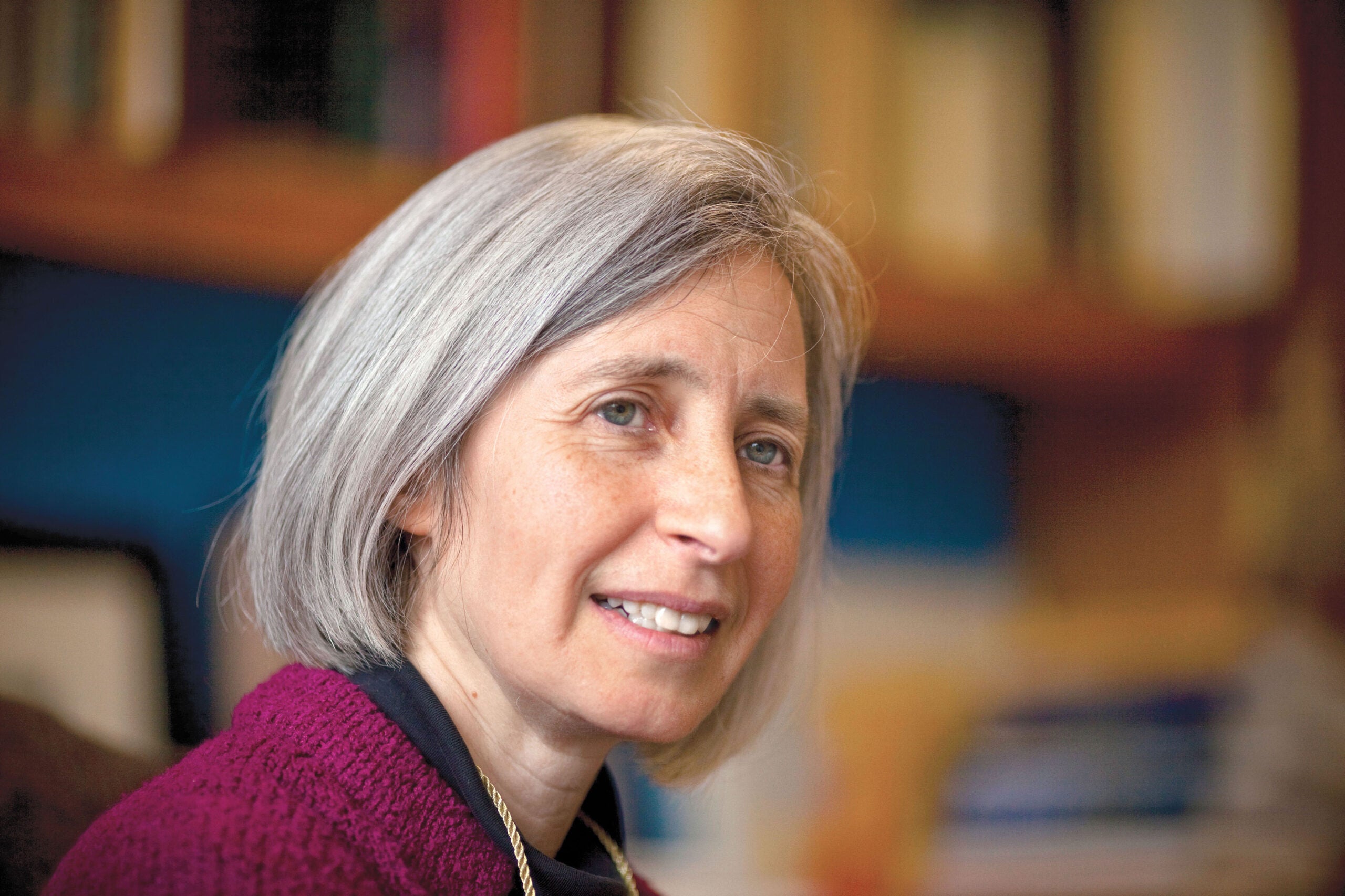“Our justice system has become inaccessible to millions of poor people and so every day, we violate the ‘equal justice under law’ motto engraved on the front of the grand United States Supreme Court.”
That is the message shared by Harvard Law School Dean and Vice Chair of the Legal Services Corporation (LSC) Board of Directors Martha Minow in a recent opinion piece in the Boston Globe. In media interviews and in testimony before state boards, Minow has been outlining the challenges faced by civil legal services and the critical need to expand access to justice.
In an Oct. 23 op-ed for the Boston Globe, “We must ensure everyone has access to equal justice,” Minow highlights the crisis in access to justice stating that although poverty levels have increased, federal contributions toward nonprofit organizations have decreased significantly over the past 20 years: “In Massachusetts, nearly 1 million people qualify for legal aid services. Despite steady funding from the Legislature, and the excellent donation of services and money by lawyers in the Commonwealth, the 15 legal aid organizations supported by Massachusetts Legal Assistance Corporation must turn away some 64 percent of those eligible for help.”
These findings are based on a recently released report by the Boston Bar Association’s Statewide Task Force to Expand Civil Legal Aid in Massachusetts, where Minow has served as a member for more than 18 months. The report, “Investing in Justice: A Roadmap to Cost-Effective Funding of Civil Legal Aid in Massachusetts,” indicates that an annual $30 million in new state funding is required to help bridge the gap between existing resources and what is needed to provide appropriate civil legal aid to all who are eligible.
On Oct. 6, at a public hearing on the Task Force to Expand Access to Civil Legal Services in New York, at the Appellate Division, First Judicial Department, Supreme Court of the State of New York, Minow testified on the need to improve access to justice for low-income legal aid clients.
In her testimony, Minow said helping the disadvantaged aids the population as a whole: “Americans who cannot afford legal help routinely forfeit basic rights. Neither the facts of their situation nor governing law are to blame. Lack of legal assistance is the problem. When people forfeit their rights simply because they cannot afford legal help, we all suffer.”
Minow was also recently profiled in LawDragon and the Harvard Gazette, “My life was gong to have to deal with issues of social injustice.”
Established by Congress in 1974, the Legal Services Corporation is the single largest provider of civil legal aid for the poor in the nation. According to the U.S. Census Bureau’s 2012 statistics on poverty, 63.6 million people were eligible for LSC-funded services. LSC-funded programs helped approximately 1.8 million people in 2013. The clients served are at or below 125 percent of the federal poverty level threshold, an income of $29,813 a year for a family of four.
Minow, the Morgan and Helen Chu Dean and Professor of Law, has taught at Harvard Law School since 1981, where her courses include civil procedure, constitutional law, family law, international criminal justice, jurisprudence, law and education, nonprofit organizations, and the public law workshop. An expert in human rights and advocacy for members of racial and religious minorities and for women, children, and persons with disabilities, she also writes and teaches about privatization, military justice, and ethnic and religious conflict.
Besides her many scholarly articles published in journals of law, history, and philosophy, her books include In Brown’s Wake: Legacies of America’s Constitutional Landmark (2010); Government by Contract (co-edited, 2009); Just Schools: Pursuing Equality in Societies of Difference (co-edited, 2008); Breaking the Cycles of Hatred: Memory, Law and Repair (edited by Nancy Rosenblum with commentary by other authors, 2003); Partners, Not Rivals: Privatization and the Public Good (2002), and others.
